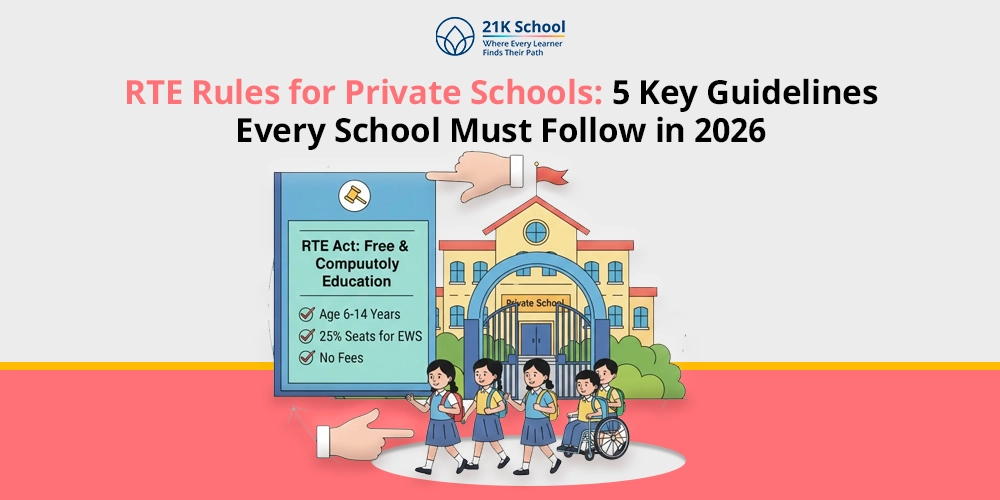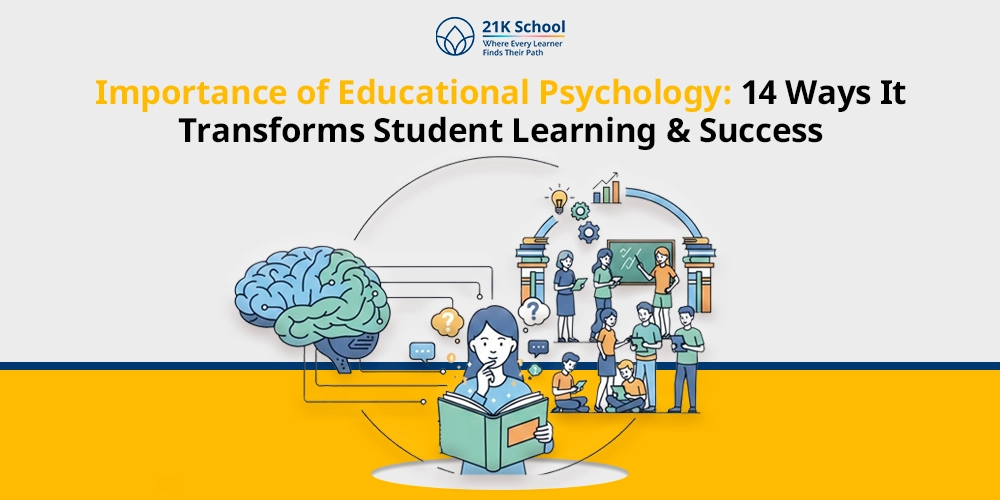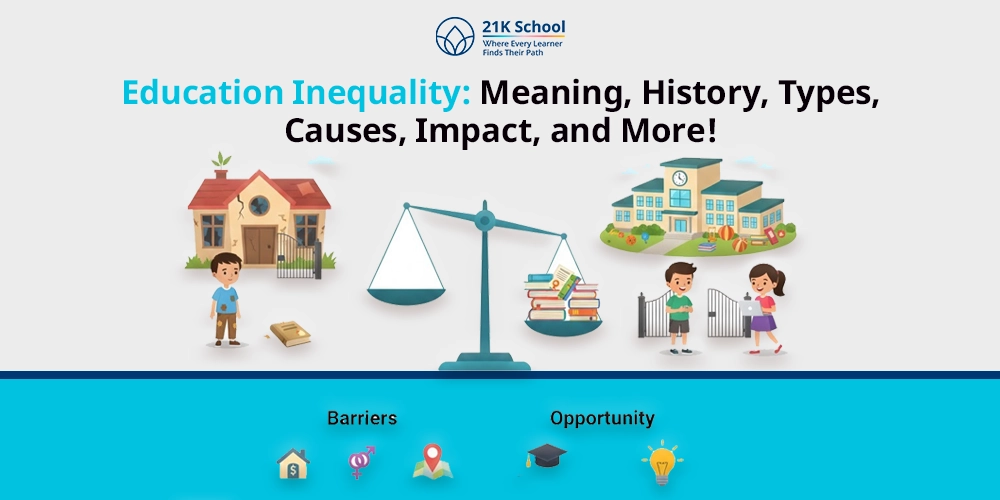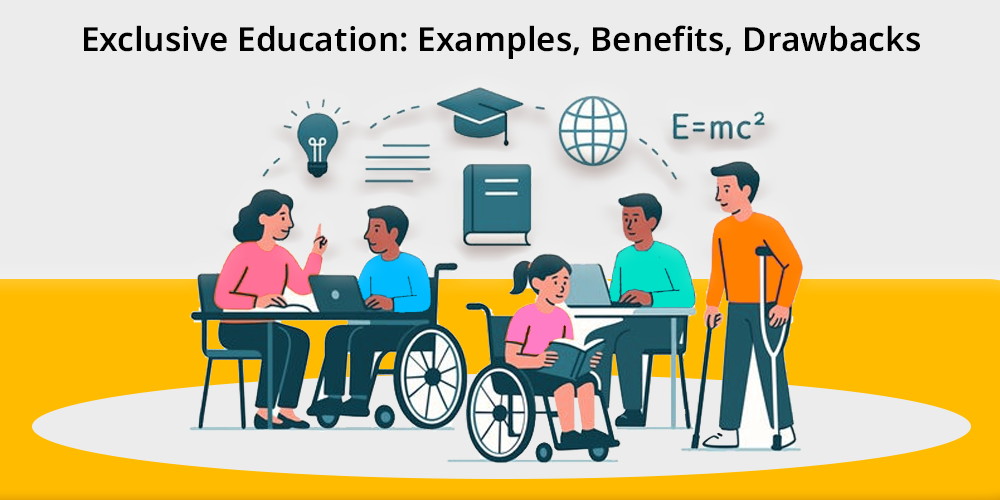
Do you know how exclusive education is different from inclusive education ?
Exclusive Education is a type of education that focuses on differentiating students. Exclusive education can be understood as a method of instruction that intentionally separates or based on students’ disabilities which could lead to their expulsion from mainstream areas.
This could mean dividing students based on socioeconomic background, disability or other factors. While exclusive education can help students with particular needs, it also raises concerns about equity and universal access to high-quality education .
Many people consider exclusive education the same as inclusive education but both are different terms and are related to intellectual abilities. It includes a process of separating students into different classrooms or schools based on the differences.
Segregated schooling, gifted education, special education schools etc., are a type of exclusive education in which students are separated based on their difficulties.
Contents
What is Exclusive Education?
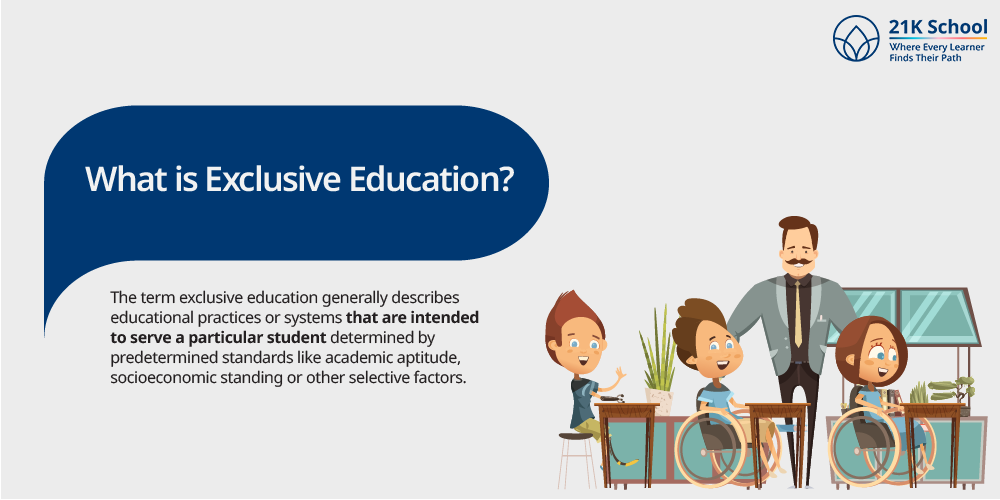
The term exclusive education generally describes educational practices or systems that are intended to serve a particular student determined by predetermined standards like academic aptitude, socioeconomic standing or other selective factors.
In exclusive learning, students were taught separately in separate schools, which creates inequality or discrimination among children. Exclusive education is considered both good and bad, as exclusive education provides opportunities to students with disabilities.
Along with that, exclusive education raises important questions about equity and access in learning environments, as it can create disparities in educational opportunities and outcomes.
Some individuals considered exclusive education the same as inclusive education because of its shared feature that both focus on children with disabilities.
4 Examples of Exclusive Education
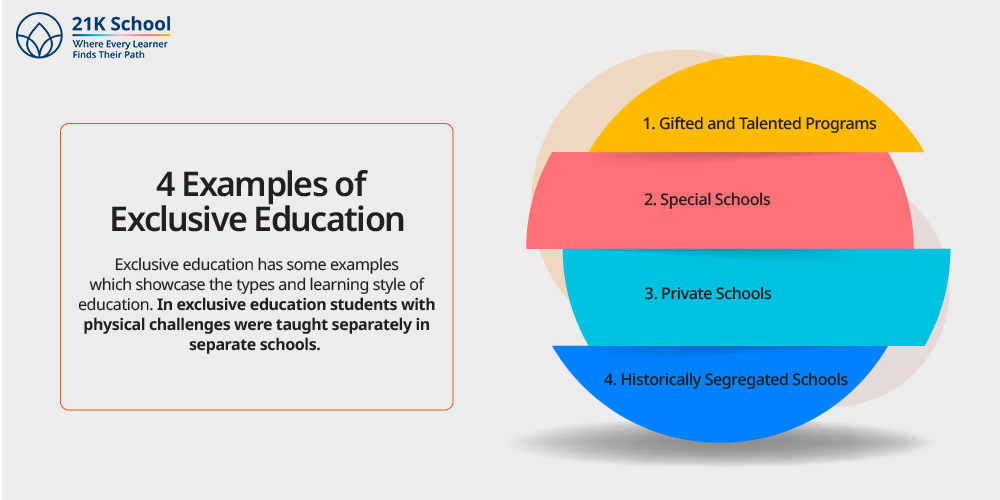
Exclusive education has some examples which showcase the types and learning style of education . In exclusive education students with physical challenges were taught separately in separate schools.
These educational practices limit participation of specific students due to physical or social factors.
The exclusive education can be conducted in private schools, gifted schools, special schools, etc. The following are the mentioned examples of exclusive education.
1. Gifted and Talented Programs
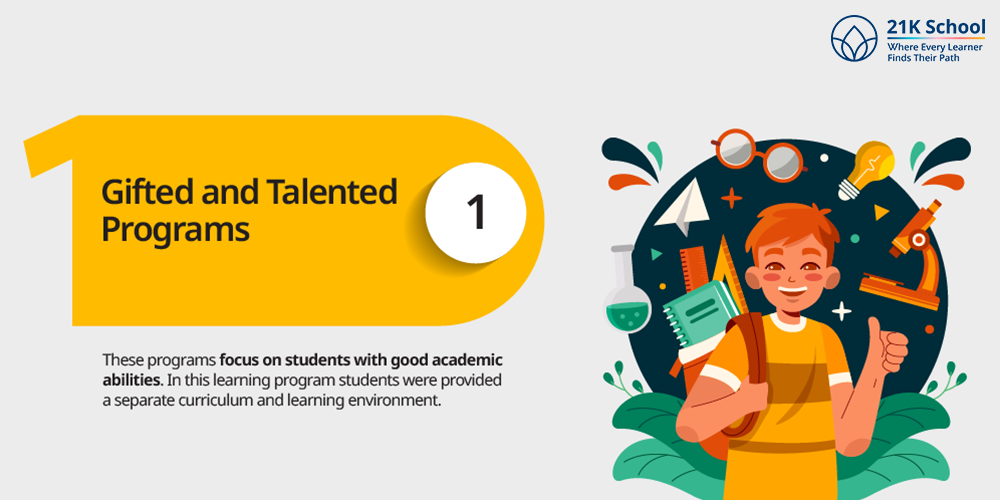
These programs focus on students with good academic abilities. In this learning program students were provided a separate curriculum and learning environment.
This creates a positive learning environment among students and provides them with the opportunity of dynamic education .
In this category students with physical challenges will be given separate learning opportunities to showcase their talents and interests. This program also helps teachers to identify the needs and academic abilities of students .
2. Special Schools
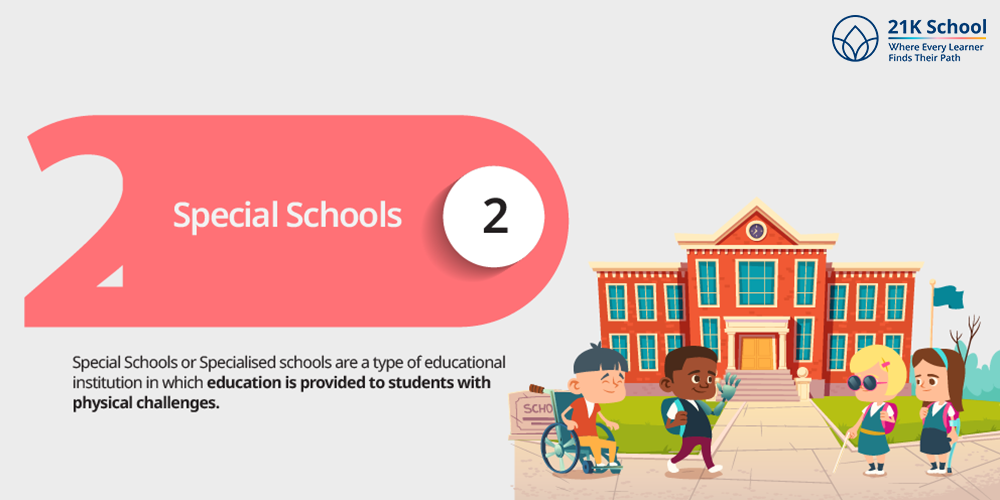
Special Schools or Specialised schools are a type of educational institution in which education is provided to students with physical challenges.
Disabled students may receive their education in classrooms or specialized schools that are separate from regular classrooms and designed to meet their specific needs.
Special schools allow children to complete their education without any hindrances and allows them to achieve lifelong goals through indulging in lifelong learning .
3. Private Schools
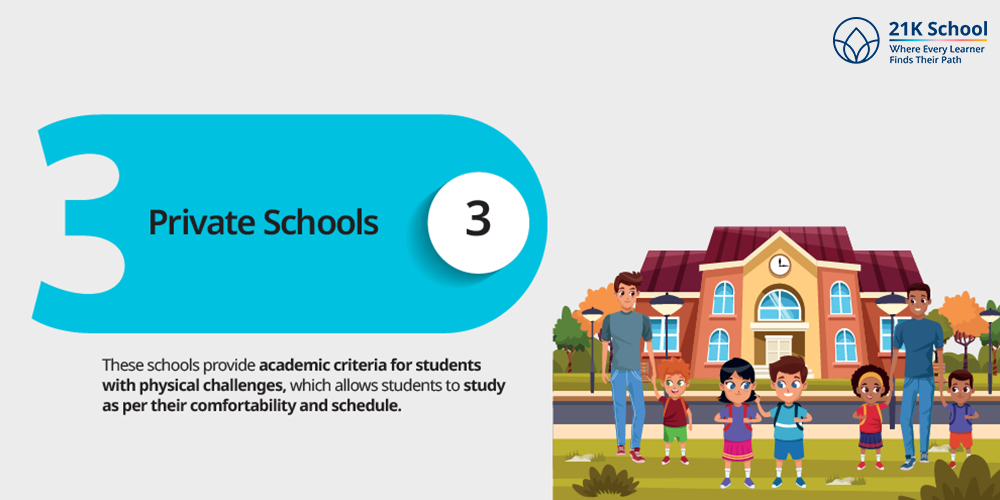
There are various private schools that have some specific criteria which allows students to study as per the need and criteria. Private schools have their own rules and regulations that abide by the government rule.
These schools provide academic criteria for students with physical challenges, which allows students to study as per their comfortability and schedule. Sometimes other students also lack admission criteria, due to which they find it difficult to engage in the teaching and learning process.
4. Historically Segregated Schools
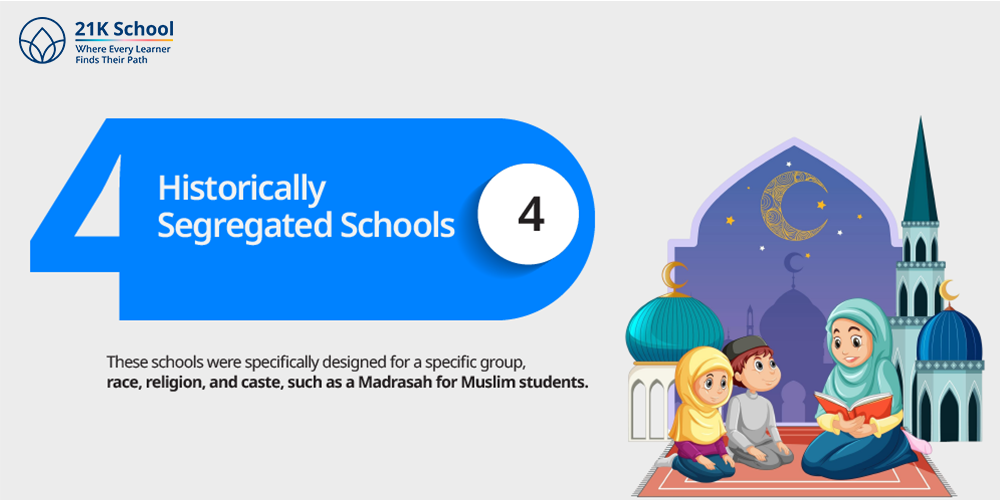
Historically segregated schools or schools for specific groups are a type of school that primarily focuses on students with specific criteria. These schools were specifically designed for a specific group, race, religion, and caste, such as a Madrasah for Muslim students.
These types of schools have some specific admission criteria by which students are admitted based on some criteria. However, segregated schools’ discriminatory practices create racial problems in schools .
Exclusive Vs Inclusive Education: Which Is Better?
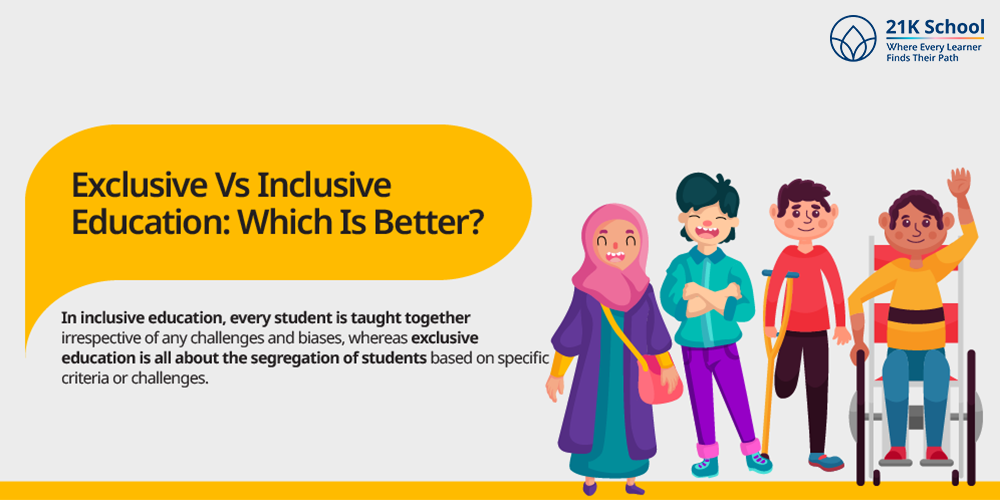
Exclusive education and inclusive education both are different concepts. However, many people relate both as the same style of learning.
In inclusive education, every student is taught together irrespective of any challenges and biases, whereas exclusive education is all about the segregation of students based on specific criteria or challenges.
Both exclusive and inclusive education have different educational concepts. Here is the detailed differentiation between exclusive and inclusive education.
| Aspect | Exclusive Education | Inclusive Education |
| Definition | Exclusive education is the process of segregation of students based on some criteria such as race, religion, special needs, and other factors. | Inclusive education focuses on combining all students of different backgrounds to teach students irrespective of any challenges or hindrances. |
| Goal | Exclusive education focuses on the specific needs of a student or a particular group and provides them with tailored education. | The aim of inclusive education is to provide students with equal access to learning and make education more equitable, as well as develop a sense of belongingness. |
| Focus | The main focus of exclusive education is to provide students with targeted learning that meets the needs of every student. These separate classes were taken for students. | The main focus of inclusive learning is to create a diverse learning environment that meets the requirements of every student. |
| Benefits | Exclusive education provides students with personalised learning and enables them to provide special focus and attention to specific students. | Inclusive education provides empathy, understanding, promotes collaboration, peer-to-peer learning and creates a positive learning environment. |
| Example | Exclusive education includes gifted and talented programs, private schools, special schools, etc. | Inclusive education includes a collaborative learning environment, implementing technology, differentiated instruction, etc. |
5 Benefits of Exclusive Education
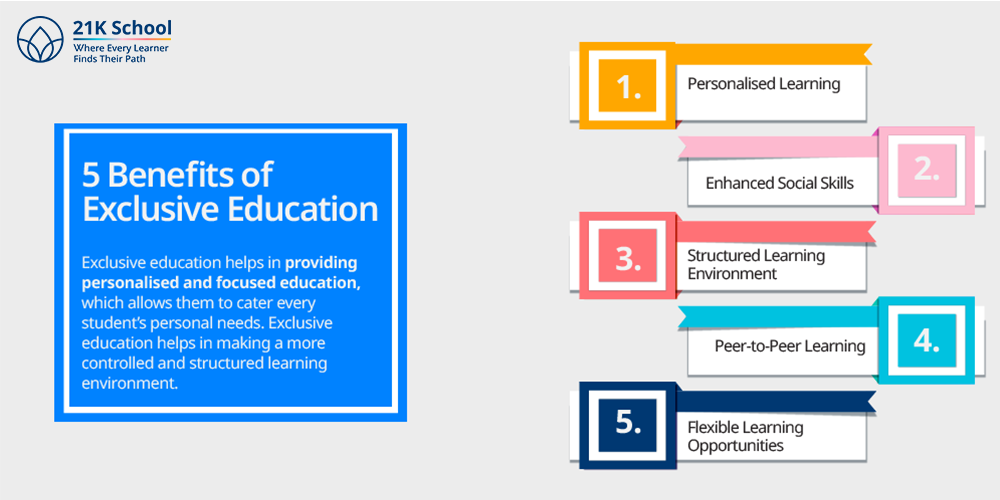
Exclusive education helps in providing personalised and focused education, which allows them to cater every student’s personal needs. Exclusive education helps in making a more controlled and structured learning environment.
This allows students to enhance their learning methods and maximise the teaching methods of educators.
Tailored learning enhances the academic performance of students and makes education more effective. Here are the following benefits of exclusive education mentioned below.
1. Personalised Learning
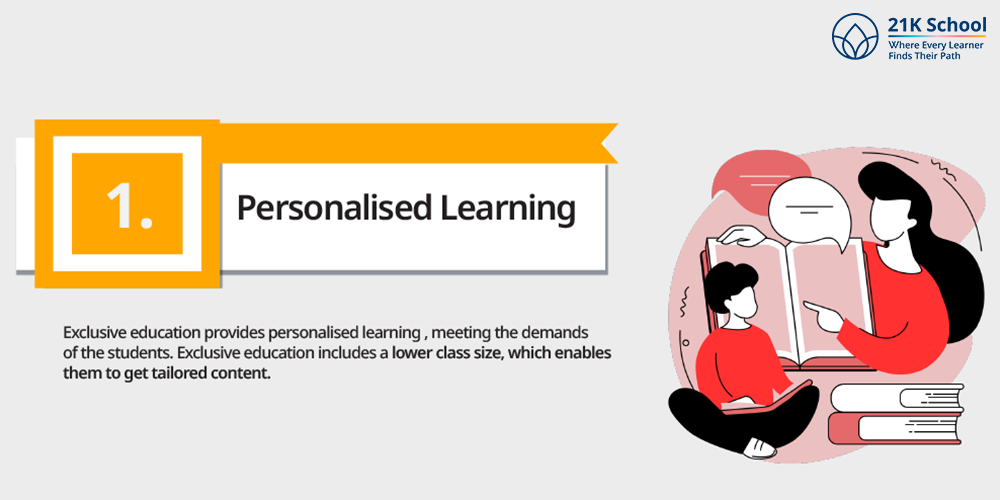
Exclusive education provides personalised learning , meeting the demands of the students. Exclusive education includes a lower class size, which enables them to get tailored content.
Through exclusive learning, teachers are able to provide more individualised attention and support to each student.
Teachers can adjust their methods to suit the unique learning styles and speeds of each student, which also increases students’ understanding and knowledge retention.
2. Enhanced Social Skills
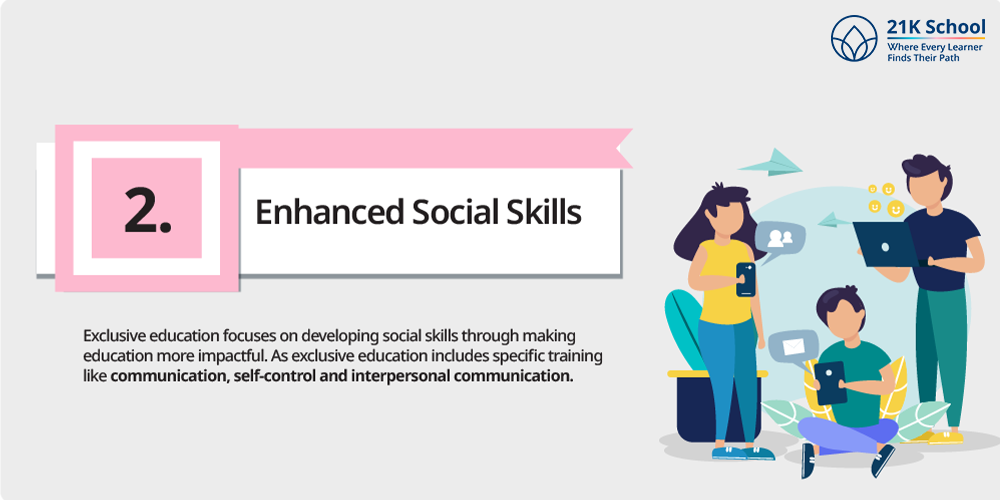
Exclusive education focuses on developing social skills through making education more impactful. As exclusive education includes specific training like communication, self-control and interpersonal communication.
By using these skills in a supportive and collaborative learning environment, students can gain the competence and self-assurance which helps in promoting positive skills and enhancing confidence.
3. Structured Learning Environment
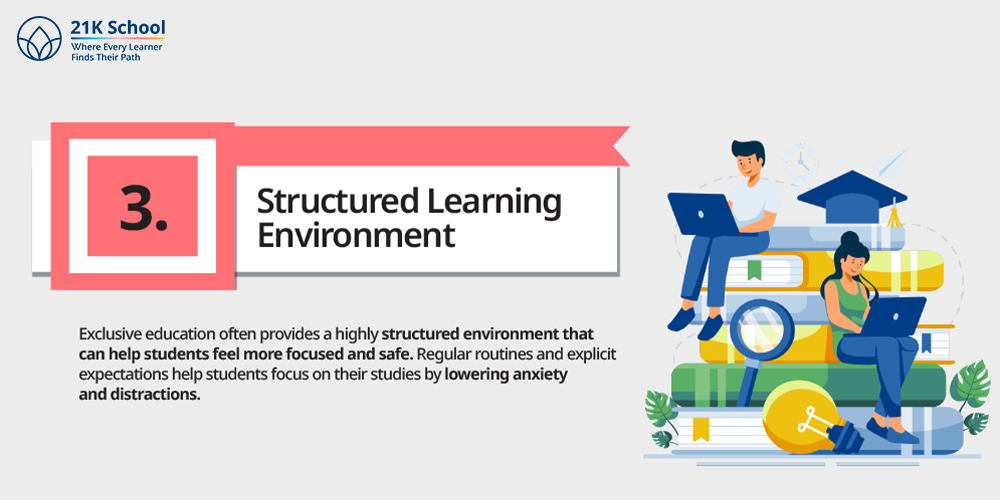
Exclusive education often provides a highly structured environment that can help students feel more focused and safe. Regular routines and explicit expectations help students focus on their studies by lowering anxiety and distractions.
A structured learning environment is helpful for students to study as per their study routine and they might struggle to learn in the traditional schooling .
4. Peer-to-Peer Learning
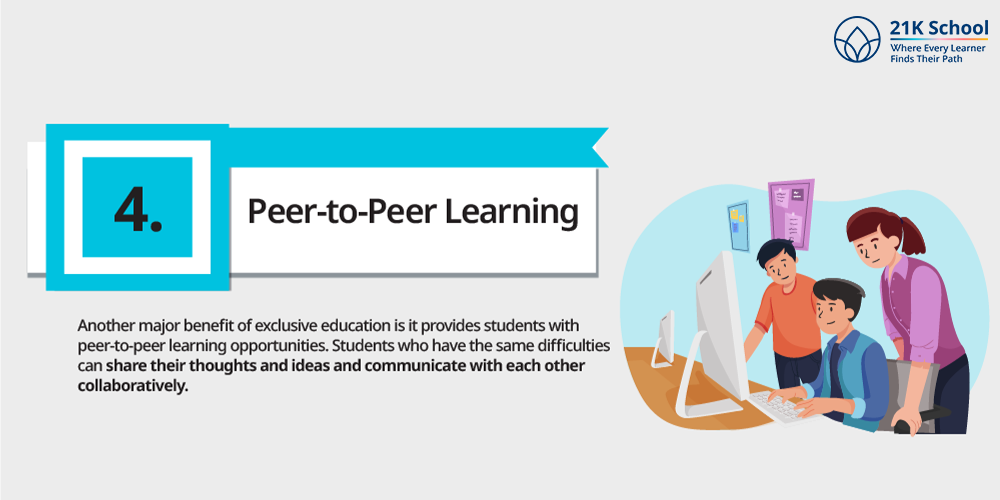
Another major benefit of exclusive education is it provides students with peer-to-peer learning opportunities. Students who have the same difficulties can share their thoughts and ideas and communicate with each other collaboratively.
The feeling of belongingness can help students develop social-emotional learning and friendships by promoting acceptance and understanding. Peer interaction in a structured environment can also improve social skills and offer chances for group learning.
5. Flexible Learning Opportunities
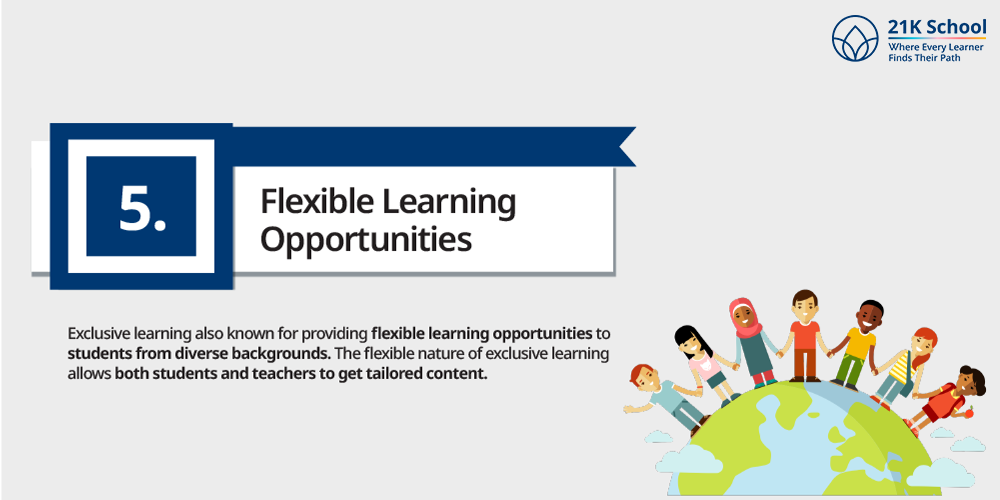
Exclusive learning also known for providing flexible learning opportunities to students from diverse backgrounds. The flexible nature of exclusive learning allows both students and teachers to get tailored content.
Teachers are often free to employ a variety of specialised teaching methods that are tailored to each student’s needs in exclusive education settings.
Drawbacks of Exclusive Education
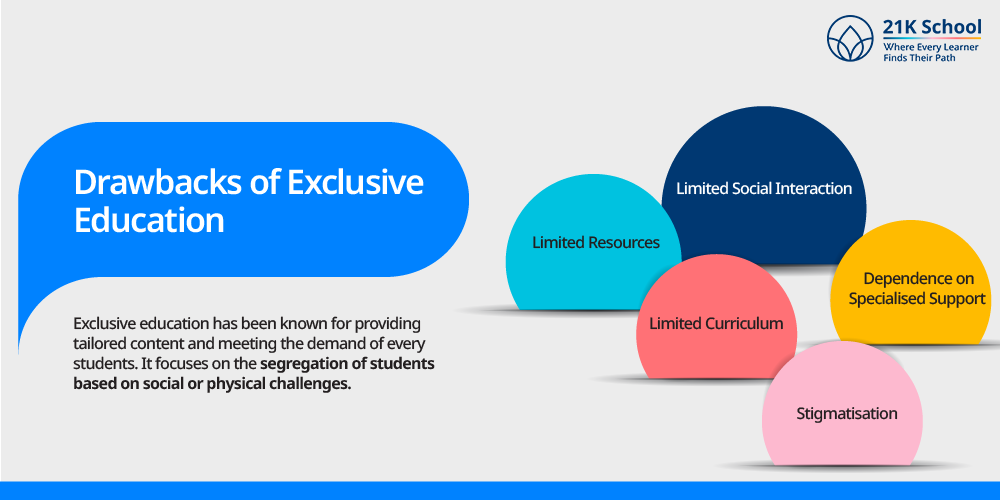
Exclusive education has been known for providing tailored content and meeting the demand of every students. It focuses on the segregation of students based on social or physical challenges.
However, along with benefits, there are various disadvantages of exclusive education. As exclusive education has a limited perspective and is less adaptable. Sometimes, segregation of students hampers student participation and impacts their communication skills . The following are the mentioned drawbacks of exclusive education.
1. Limited Social Interaction
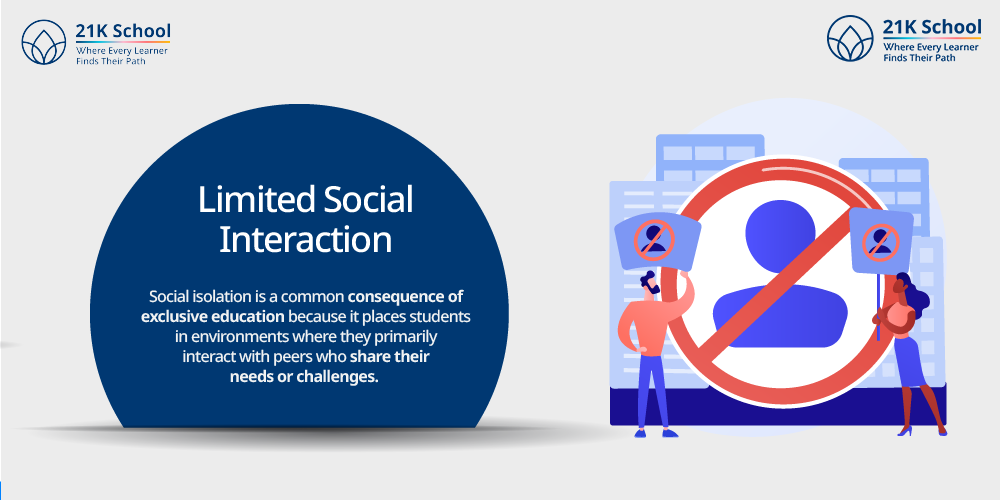
Exclusive education hampers social skills among students. Social isolation is a common consequence of exclusive education because it places students in environments where they primarily interact with peers who share their needs or challenges.
This lack of interaction may hinder the development of vital social skills like empathy , effective communication, and conflict resolution.
2. Limited Resources
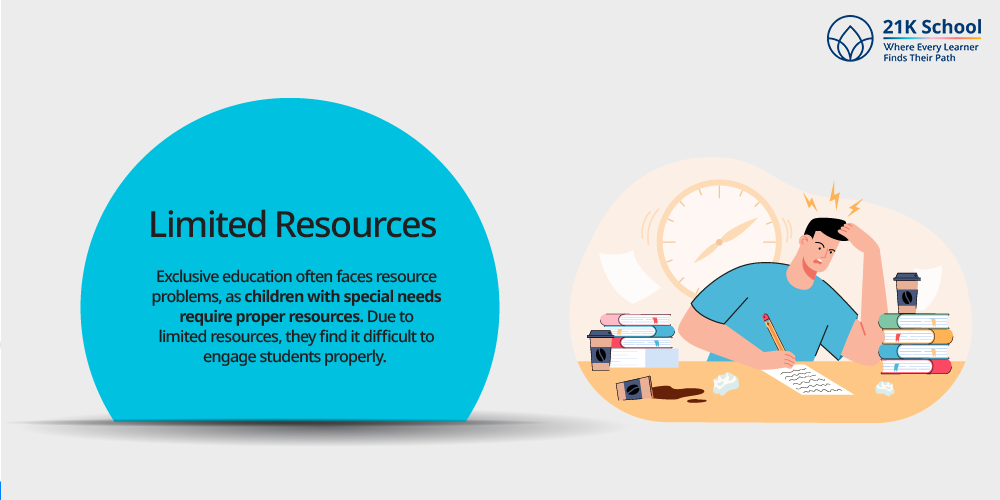
Exclusive education often faces resource problems, as children with special needs require proper resources. Due to limited resources, they find it difficult to engage students properly.
Lack of availability of resources hinders the development of critical thinking skills and reduces exposure to cultural awareness . This hampers a well-rounded education and restricts students’ future opportunities and their capacity to interact with others.
3. Limited Curriculum
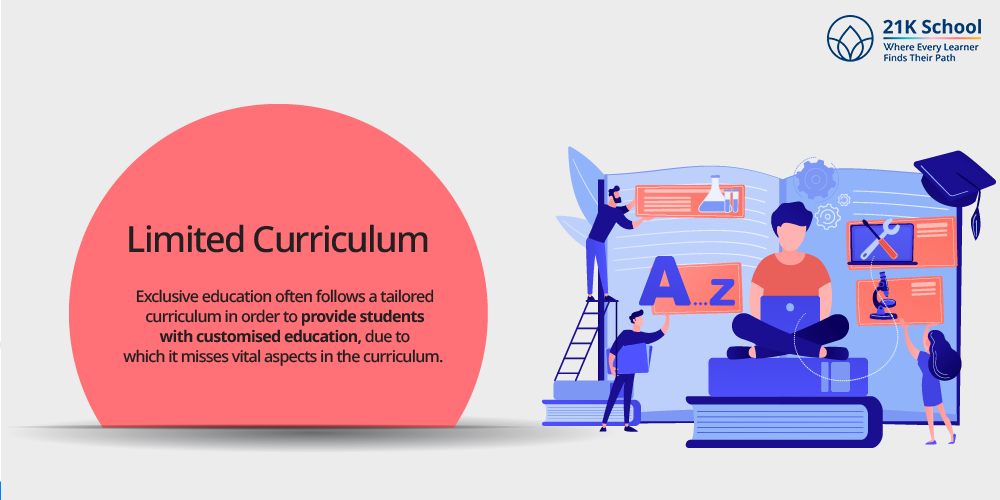
Exclusive education often follows a tailored curriculum in order to provide students with customised education, due to which it misses vital aspects in the curriculum.
This emphasis may help students with specific learning difficulties, but it may also cause them to lose out on important subjects or topics. Due to a limited curriculum, students find it difficult to explore different perspectives of ideas.
4. Dependence on Specialised Support
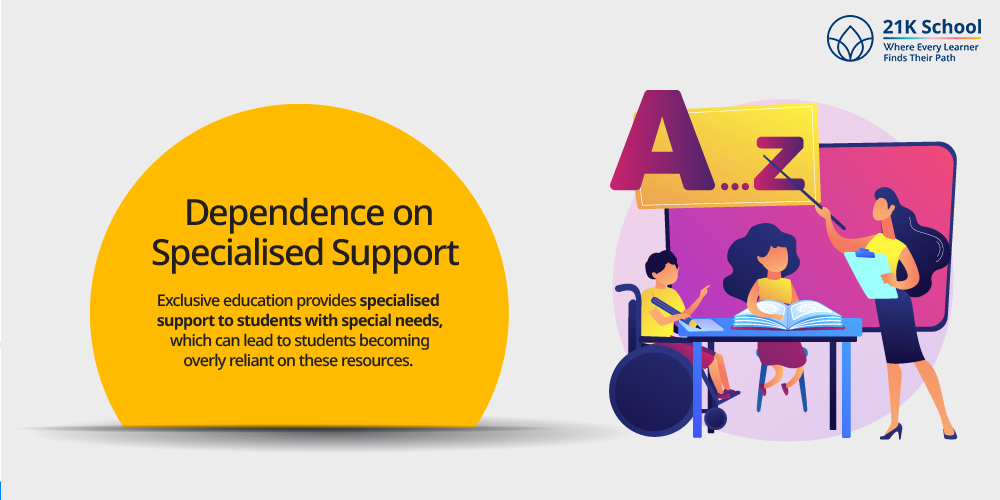
Exclusive education provides specialised support to students with special needs, which can lead to students becoming overly reliant on these resources.
They might find it more challenging to learn important problem-solving and self-management skills, as well as to operate independently in less structured environments. This causes them to become dependent and hampers their creative thinking skills .
5. Stigmatisation
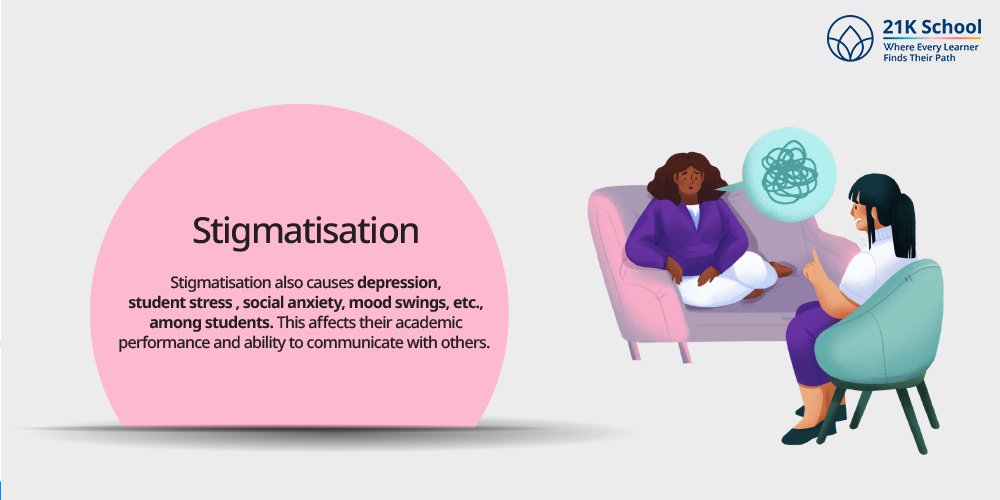
Stigmatisation is a drawback of exclusive education as students with challenges were viewed differently from others. Stigmatisation affects students mental health and causes them to become socially isolated.
Stigmatisation also causes depression, student stress , social anxiety, mood swings, etc., among students. This affects their academic performance and ability to communicate with others.
Wrapping Up
Exclusive education provides specialised assistance for students with particular needs; it also has serious drawbacks such as a lack of social interaction, a lack of resources and the possibility of stigmatisation.
Although it can improve individualised instruction, exclusive education’s inherent segregation may impede students’ independence and general growth.
Making sure that all students have the chance to flourish in diverse and cooperative settings requires striking a balance between individualised support and inclusive practices in order to establish a more equitable educational landscape.

